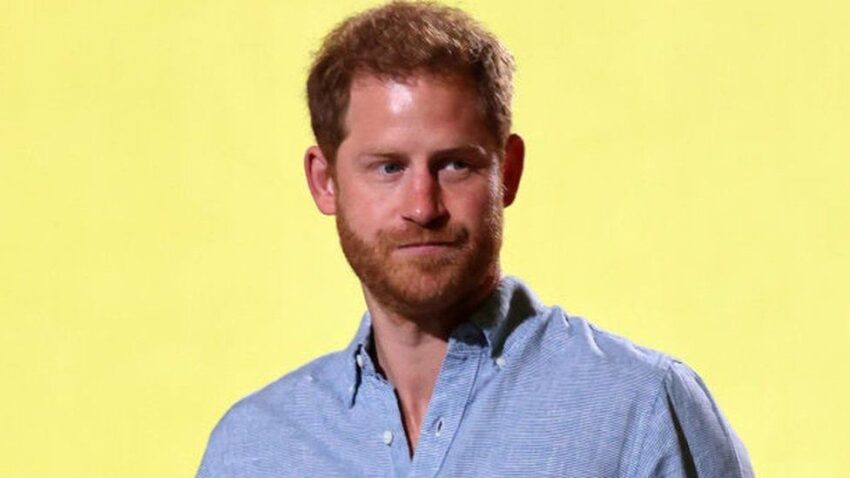In a recent development, the Heritage Foundation has urged Homeland Security to investigate Prince Harry’s past drug addiction, as discussed in his book.
The aim is to determine whether he lied about his drug use.
A royal expert has weighed in on the matter, stating that if Prince Harry admitted to drug use and faced legal consequences in the United States, the outcome would depend on various factors, including the circumstances, laws, and actions taken by law enforcement and judicial authorities.
While cannabis laws differ across states, it remains federally illegal.
If Harry violated federal drug laws, he could potentially face fines, probation, or even jail time, depending on the severity of the offense and the specific federal laws involved.
The implications extend beyond legal consequences, as Harry’s immigration status could also be affected.
Non-U.S. citizens, including those on temporary visas, may face immigration consequences if convicted of certain offenses.
The exact consequences would depend on the seriousness of the offense, the type of visa or residency status Harry holds, and the discretion of immigration authorities.
It is conceivable that such circumstances could lead to the revocation of Harry’s visa or raise questions about his residency status based on immigration policy laws and regulations.
It is worth noting that Prince Harry is not a U.S. citizen, which further complicates matters.
His admission to drug use and possession, as documented in writing, could have legal ramifications.
The consequences would vary depending on the specific circumstances, the gravity of the crime, and the discretion of law enforcement and immigration authorities.
Generally, individuals convicted of drug-related offenses may face fines, probation, community service, mandatory treatment programs, or, in severe cases, imprisonment.
Given Harry’s high-profile status, any legal proceedings would likely attract media attention and public scrutiny.
Turning to his UK trial, it is noteworthy that it took Prince Harry over 15 years to gather the courage to come forward with his allegations.
However, during the trial, he failed to provide substantial evidence to support his claims.
Contrary to previous reports, his allegations date back to the 1990s, not nearly 30 years ago.
While Harry had a suspicion that he had been a victim of phone hacking, he lacked concrete evidence to prove when or if it actually occurred.
Unfortunately, in his pursuit of justice, he inadvertently involved his former girlfriend, Chelsea Davy, in his battle against the media.
Harry’s decision to accuse a former publisher of supporting illegal information gathering methods has raised eyebrows.
Chelsea Davy, who had moved on with her life, got married, and had a son, was unexpectedly dragged into the spotlight.
The repercussions of this trial extend beyond Harry and could potentially impact Meghan Markle as well.
It raises questions about whether the woman he loves is truly his wife or if his ex-girlfriend holds a more significant place in his heart.
In court, Harry made several accusations but relied solely on his personal feelings to substantiate them.
During cross-examination by the defendant’s legal team, the focus understandably shifted to tangible evidence that could be presented to the court.
It appears that Harry lacked the evidence to support his claims fully.
While it is reasonable to assume that Harry, like other members of the royal family and celebrities, may have fallen victim to illegal phone hacking, he failed to provide a written statement disclosing the private information that was leaked to the media.
Instead, most of his examples were incidents already known to the public or instances where the press obtained information through legal means, such as official press releases or casual conversations.
Prince Harry seems to be presenting a case unrelated to the current trial.
He argues that the media invades his privacy solely because he is a public figure.
While this argument holds some validity, his decision to discuss rumors about his paternity and publicly address his past relationship with Chelsea Davy weakens his position.
These topics are not directly relevant to the ongoing court case.
Furthermore, his mention of the private settlement received by his brother, Prince William, in connection with phone hacking breaches William’s privacy.
Critics argue that Harry’s motives for pursuing this case extend beyond seeking justice.
They speculate that he views it as an opportunity to air all his grievances, even those unrelated to the trial.
However, if he aims to secure a substantial settlement, he must provide factual evidence directly related to the case.
Unfortunately, Harry’s lack of concrete evidence undermines his credibility.
Some believe that he was manipulated by others, such as Elton John, into becoming their spokesperson without possessing the necessary intelligence or evidence to support his claims.
In conclusion, Prince Harry’s admission of past drug use raises questions about potential legal consequences and implications for his immigration status.
The ongoing UK trial has shed light on his allegations of phone hacking, but his failure to provide substantial evidence weakens his case.
While he may have legitimate grievances against the media, his decision to discuss personal and irrelevant matters further undermines his position.
Ultimately, the court will decide the outcome based on the evidence presented, and the public will continue to scrutinize Harry’s actions and statements.
